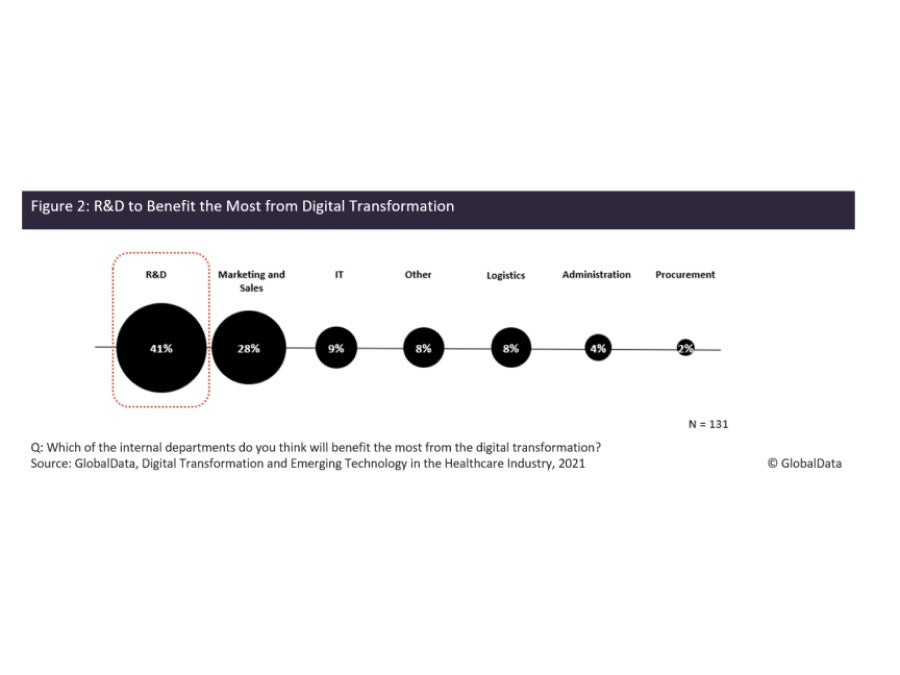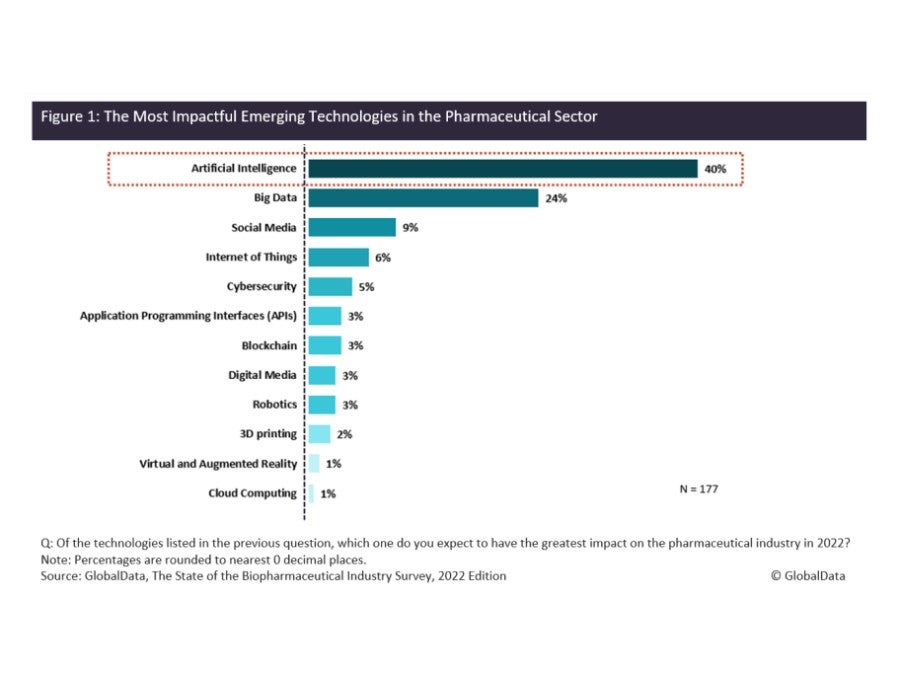Despite being years away from exhibiting its full potential, artificial intelligence (AI) stands out as a multipurpose solution to address challenges faced by the entire pharmaceutical value chain. For example, in drug discovery and development, AI can reduce time to identify drug targets; in manufacturing, enable intelligent process automation and optimise predictive maintenance; in supply chain, enhance demand forecasting and inventory management; and in marketing and sales, facilitate targeted marketing campaigns.
According to a GlobalData survey on ‘The State of the Biopharmaceutical Industry’, conducted with pharmaceutical industry professionals from November 17, 2021, to December 17, 2021, 40% of 177 total respondents highlighted AI as the technology expected to have the greatest impact on the pharmaceutical industry in 2022 (Figure 1). The pharmaceutical industry is data-driven. With the ever-increasing volume and complexity of data being generated by the sector, the need to analyse information will continue to pose challenges that can be best addressed by AI.
In another GlobalData survey, ‘Digital Transformation and Emerging Technology in the Healthcare Industry‘, completed by healthcare industry professionals between September 22, 2021, and October 26, 2021, 41% of 131 total respondents anticipated that of internal departments, R&D would be benefitting the most from digitalisation efforts in the pharmaceutical sector (Figure 2). The pharmaceutical industry spends significant revenue on R&D activities that do not deliver expected returns. With innovations becoming an integral part of the pharma industry, emerging technologies are becoming a key tool to streamline operating models and enhance R&D productivity and effectiveness.

AI has already shown it can deliver significant productivity improvements and drive efficiencies in drug development processes. In January 2020, the AI players Exscientia and Sumitomo Dainippon announced the first compound designed by AI, DSP-1181, to enter a Phase I clinical trial for obsessive-compulsive disorder, taking less than 12 months from initial screening until completion of preclinical testing. The second molecule produced by this partnership, DSP-0038, for Alzheimer’s disease psychosis, entered clinical trials in May 2021. In April 2020, BenevolentAI identified Eli Lilly’s baricitinib as a potential Covid-19 treatment in just three days. This drug received Emergency Use Authorisation (EUA) by the FDA in November 2020. In April 2021, Exscientia and Evotec announced a Phase I trial for the first AI-designed immuno-oncology drug, an A2a receptor antagonist for the treatment of advanced solid tumours.
The partnerships between AI technology vendors and pharmaceutical companies will continue to rise and we should definitely witness more of these collaborations in the future. Less than one month into 2022, we have already seen Sanofi sealing a deal with Exscientia to develop oncology and immunology treatments, and BenevolentAI and AstraZeneca agreeing on the expansion of their AI-powered drug discovery partnership to include systemic lupus erythematosus (SLE) and heart failure (HF). This indicates that the role of AI in the drug discovery and development process is only set to grow.

US Tariffs are shifting - will you react or anticipate?
Don’t let policy changes catch you off guard. Stay proactive with real-time data and expert analysis.
By GlobalData




